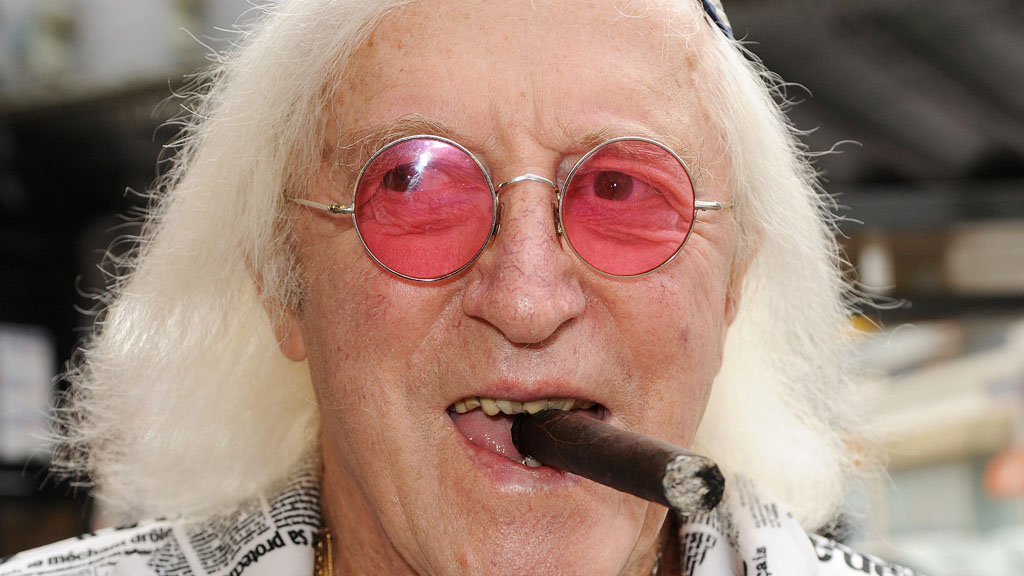Did winks and whispers fix it for Jimmy Savile?
 Paraic O'Brien
Foreign Affairs Correspondent
Paraic O'Brien
Foreign Affairs Correspondent
Why did so many individuals and institutions ignore the warnings about Jimmy Savile? Was it the tyranny of celebrity? Or an outdated, male-dominated culture that was happy to turn a blind eye?

“Newsnight is not normally interested in celebrity expose“. One of the reasons given by the editor of Newsnight for spiking the original Savile investigation.
This demonstrates a profound misunderstanding (and a touch of snobbery) about what the Savile story is about. It’s about the abuse of power. It is about the tyranny of celebrity. It is about how the weight of a powerful, cleverly-branded persona can steam roll over the weak and vulnerable.
Savile was not just another celebrity. He was, like some of today’s A-listers, an institution. Challenging institutions is what we journalists do. I used to work at Newsnight and know all the characters involved. They are, including the editor Peter Rippon, some of the best journalists in the business, and I have found no evidence that the story was pulled at the time for anything other than editorial reasons.
What the whole sorry episode shows is how hard it is, sometimes even for the most qualified, to penetrate an institutional lie.
It wasn’t just Newsnight, by the way. The Sun, for example, spent many months investigating Savile. They had more than Newsnight. They also decided to drop the story because, as I was told, “you don’t f*** with a national treasure, unless you’re 100 per cent sure.”
One of the most powerful things journalism can do is puncture a prevailing, universally held falsehood, especially one so powerful it’s become part of a country’s cultural DNA. This is what the ITV documentary achieved. Journalists, like me, jumped on the bandwagon.
Monday 8 October: We revealed (see video below) that, despite what he originally said, Freddie Starr had met Savile on the set of a programme called Clunk Click. We unearthed footage that not only showed Starr with Savile on the programme but showed him sitting beside a 14-year-old girl who turned out to be the woman who had alleged that Starr had molested her – a claim he denies.
We also spoke to Savile’s producer of 21 years, originally on Clunk Click and then on Jim’ll Fix it.
Tuesday 9 October: The rumours and conjecture became much more than that at a shocking police briefing at New Scotland Yard. The scale of the abuse became clear. Police told us they were pursuing 120 lines of enquiry. There were between 20-25 victims. That has now reached 60.
Thursday 11 October: It became apparent that the BBC wasn’t the only public institution to become embroiled in the scandal. Victims came forward who had allegedly experienced abuse at Stoke Mandeville Hospital, Leeds General Infirmary and Broadmoor.
Friday 12 October: We decided to look at a specific concern flagged up to BBC management by a Radio 1 producer. We tried to trace that complaint up the corporate food chain. The exercise painted a very clear, very sad picture of how easy it was for concerns over Savile to become lost in the BBC’s male-dominated, corporate machinery.
The big question: What next?
A dead man can’t sue you. The lack of any active court proceedings means a jury can’t be prejudiced. Cue: journalistic free-for-all. At Channel 4 News we’re trying to focus our energies on the parts of this story that matter most. I’d be interested to hear what you think. Email me: paraic.o’brien@itn.co.uk or follow me on twitter: @paraicobrien.
We are trying to concentrate, for example, on people who could actually be prosecuted. Was there a small group of people surrounding Savile that practically facilitated the abuse? If there were, who are they? The BBC also still has questions to answer.
The Director-General George Entwistle said he didn’t know what was in the Newsnight investigation. He is due to appear before the Commons select committee for culture media and sport next week.
‘That’s just the way it was’
I’ve spoken to many BBC managers and contemporaries of Savile at the time. They are exclusively male (one wonders whether the abuse would have been as widespread if there had been any women in management at BBC back then). The former managers tell me about the rumours with a resigned, watery eyed wink in the eye, “That was just the way it was back then,” they say.
My Mum and Dad were in their 30s back then and, like any other ordinary, responsible person, would have been appalled if they had heard what was happening. No, when it comes to Savile’s abuse, “that’s just the way it was” inside a small media bubble. “That’s just the way it was” because people decided to turn a blind eye.
The mothers and fathers of those abused didn’t know that “that’s just the way it was”.
-
Latest news
-
‘Government responsiveness should be improved’ says infected blood inquiry chair4m

-
Infected Blood scandal: How UK failed on a global scale4m

-
‘There’s a strong evidential basis’ for ICC to grant arrest warrants for Netanyahu, says criminal law expert4m

-
International Criminal Court prosecutor seeks arrest warrants for Israel PM and Hamas leaders3m

-
‘Highly unlikely there was foul play’ in Iran president helicopter crash, says Tehran professor5m

-




